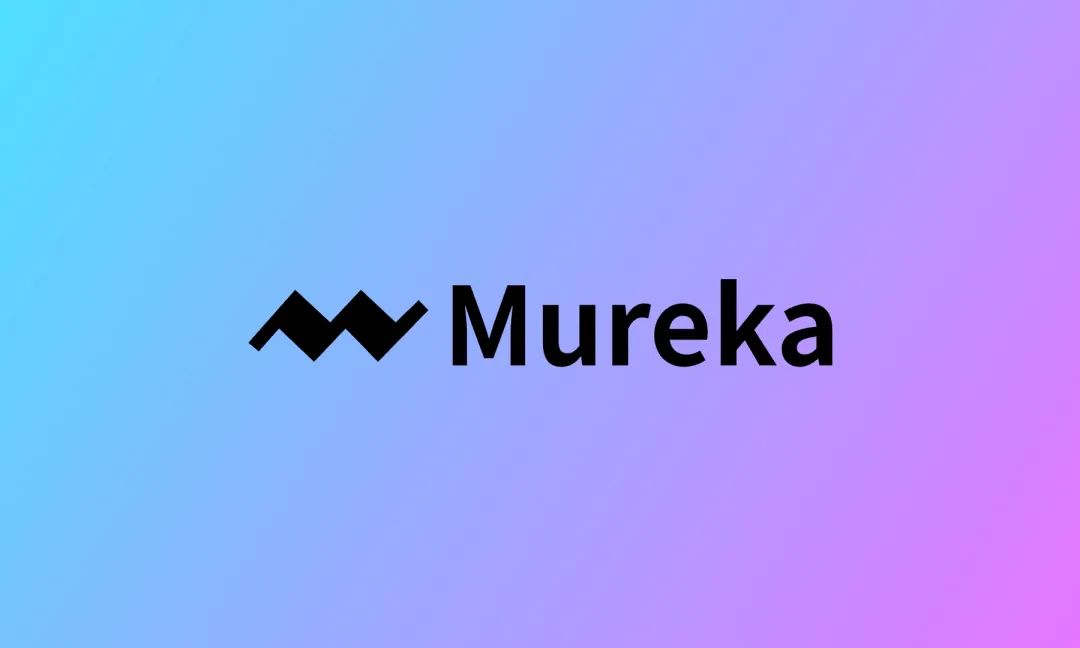
一家初创公司成为“独角兽”,即作为私有公司市值达到10亿美元,曾经是一个令人羡慕的身份。十年前独角兽公司只有80家。后来零利率时代带来的繁荣,使独角兽公司的数量到2024年初超过1,200家。但投资这些公司的风险投资家们却有一个迫切的问题:他们能否顺利退出?
所谓的“独角兽时代”已经结束,取而代之的是公开市场的冰冻期,《财富》杂志在1月发表的封面文章中将其称为“独角兽消亡时代”。随着加息和政府监管部门对并购活动的打击,那些以前可以获得数十亿美元融资的公司发现现在很难取得成功,有许多公司在不太宽容的金融环境下折戟沉沙。
在周二举办的《财富》科技头脑风暴大会上,来自谷歌(Google)独立成长基金CapitalG和诺威斯特(Norwest)等风险投资公司的多位知名投资人汇聚一堂,讨论了他们如何应对新现实,以及未来几年IPO市场是否会复苏。讨论的结果喜忧参半,大多数投资者都认为,2021年IPO市场的繁荣,导致投资者对初创公司产生了不切实际和不负责任的预期。Renegade Partners联合创始人兼总经理雷娜塔·昆蒂尼表示:“我们来这里不是为了预测市场时机。”
是否进行IPO
虽然2021年经历了火爆的公开募股市场,但随着加息,投资者纷纷转投国债等更安全的资产,IPO数量锐减。因此,对于科技公司而言,IPO作为曾经可靠的退出策略,已经不再是一个选项。
CapitalG合伙人吉尔·格林伯格·蔡斯表示,最近Reddit和Rubric等科技公司的IPO大获成功,使市场状况似乎有所好转。这两家公司的股价依旧高于发行价。她表示:“我们需要更多这样的公司。在看到更多数据之前,我们认为IPO市场直到2025年年初都难有起色。”
这可能依旧过于乐观。蓝宝石创投(Sapphire Ventures)联合创始人兼总裁贾伊·达斯表示,他认为最糟糕的阶段尚未结束,2021年和2022年的风险投资热潮,使公司坐拥过多现金,却没有创造出在公开市场上足以吸引更谨慎的投资者的数据。相反,他预测科技公司将继续求助于私募股权公司,因为后者支付的估值倍数,通常远低于风险投资公司所追求的倍数。
由于监管机构更严格的态度,另外一种退出途径也已经关闭。美国司法部和联邦贸易委员会(Federal Trade Commission)对大规模交易的审查变得更加严格,例如Adobe在2023年晚些时候放弃了以200亿美元收购设计软件公司Figma的计划。昆蒂尼表示:“这肯定会抑制创新。”
周日,《华尔街日报》的一篇报道称,谷歌以230亿美元收购网络安全公司Wiz的计划,已经进入后期谈判阶段。这笔交易如果顺利完成,则意味着并购市场复苏,但在周二的专家讨论中,嘉宾们均表现出谨慎乐观的态度。
尽管市场形势日趋紧张,但风险投资家们一致认为,尤其是在市场崩溃前,风险投资公司在没有清晰的可持续营收途径的初创公司投入大量资金之后,对所投资的公司抱有更现实的预期,可以使科技生态系统变得更健康。诺威斯特合伙人丽莎·吴表示:“自然会有一些后遗症。”
唯一的例外是人工智能,在该领域领先的公司依旧能获得2021年的估值。在没有明确了解人工智能的整体潜在市场(TAM)的情况下,蔡斯表示她会选择“你需要相信的估值方法”,即尝试理解公司的基本指标,以及这些公司如何实现增长,以证明其融资的合理性。她说道:“这种技术潜力巨大。我们在评估市场规模时,需要采取截然不同的方式。”
当然,麦德罗纳风险投资集团(Madrona Venture Group)的总经理马特·麦基尔韦恩表示,无论是技术的能力还是客户的需求,人工智能市场正在快速进化。他认为,以这些人工智能的能力为基础创建并且可以为客户创造真正价值的初创公司,将在人工智能时代的下一个阶段占据优势。
麦基尔韦恩表示,目前OpenAI的GPT和谷歌的Gemini等大语言模型吸引了大量关注,但最重要的人工智能模式“是商业模式”。(财富中文网)
译者:刘进龙
审校:汪皓
风险投资公司诺威斯特创投的合伙人丽莎·吴STEVE VARGO/FORTUNE
一家初创公司成为“独角兽”,即作为私有公司市值达到10亿美元,曾经是一个令人羡慕的身份。十年前独角兽公司只有80家。后来零利率时代带来的繁荣,使独角兽公司的数量到2024年初超过1,200家。但投资这些公司的风险投资家们却有一个迫切的问题:他们能否顺利退出?
所谓的“独角兽时代”已经结束,取而代之的是公开市场的冰冻期,《财富》杂志在1月发表的封面文章中将其称为“独角兽消亡时代”。随着加息和政府监管部门对并购活动的打击,那些以前可以获得数十亿美元融资的公司发现现在很难取得成功,有许多公司在不太宽容的金融环境下折戟沉沙。
在周二举办的《财富》科技头脑风暴大会上,来自谷歌(Google)独立成长基金CapitalG和诺威斯特(Norwest)等风险投资公司的多位知名投资人汇聚一堂,讨论了他们如何应对新现实,以及未来几年IPO市场是否会复苏。讨论的结果喜忧参半,大多数投资者都认为,2021年IPO市场的繁荣,导致投资者对初创公司产生了不切实际和不负责任的预期。Renegade Partners联合创始人兼总经理雷娜塔·昆蒂尼表示:“我们来这里不是为了预测市场时机。”
是否进行IPO
虽然2021年经历了火爆的公开募股市场,但随着加息,投资者纷纷转投国债等更安全的资产,IPO数量锐减。因此,对于科技公司而言,IPO作为曾经可靠的退出策略,已经不再是一个选项。
CapitalG合伙人吉尔·格林伯格·蔡斯表示,最近Reddit和Rubric等科技公司的IPO大获成功,使市场状况似乎有所好转。这两家公司的股价依旧高于发行价。她表示:“我们需要更多这样的公司。在看到更多数据之前,我们认为IPO市场直到2025年年初都难有起色。”
这可能依旧过于乐观。蓝宝石创投(Sapphire Ventures)联合创始人兼总裁贾伊·达斯表示,他认为最糟糕的阶段尚未结束,2021年和2022年的风险投资热潮,使公司坐拥过多现金,却没有创造出在公开市场上足以吸引更谨慎的投资者的数据。相反,他预测科技公司将继续求助于私募股权公司,因为后者支付的估值倍数,通常远低于风险投资公司所追求的倍数。
由于监管机构更严格的态度,另外一种退出途径也已经关闭。美国司法部和联邦贸易委员会(Federal Trade Commission)对大规模交易的审查变得更加严格,例如Adobe在2023年晚些时候放弃了以200亿美元收购设计软件公司Figma的计划。昆蒂尼表示:“这肯定会抑制创新。”
周日,《华尔街日报》的一篇报道称,谷歌以230亿美元收购网络安全公司Wiz的计划,已经进入后期谈判阶段。这笔交易如果顺利完成,则意味着并购市场复苏,但在周二的专家讨论中,嘉宾们均表现出谨慎乐观的态度。
尽管市场形势日趋紧张,但风险投资家们一致认为,尤其是在市场崩溃前,风险投资公司在没有清晰的可持续营收途径的初创公司投入大量资金之后,对所投资的公司抱有更现实的预期,可以使科技生态系统变得更健康。诺威斯特合伙人丽莎·吴表示:“自然会有一些后遗症。”
唯一的例外是人工智能,在该领域领先的公司依旧能获得2021年的估值。在没有明确了解人工智能的整体潜在市场(TAM)的情况下,蔡斯表示她会选择“你需要相信的估值方法”,即尝试理解公司的基本指标,以及这些公司如何实现增长,以证明其融资的合理性。她说道:“这种技术潜力巨大。我们在评估市场规模时,需要采取截然不同的方式。”
当然,麦德罗纳风险投资集团(Madrona Venture Group)的总经理马特·麦基尔韦恩表示,无论是技术的能力还是客户的需求,人工智能市场正在快速进化。他认为,以这些人工智能的能力为基础创建并且可以为客户创造真正价值的初创公司,将在人工智能时代的下一个阶段占据优势。
麦基尔韦恩表示,目前OpenAI的GPT和谷歌的Gemini等大语言模型吸引了大量关注,但最重要的人工智能模式“是商业模式”。(财富中文网)
译者:刘进龙
审校:汪皓
Lisa Wu, Partner, Norwest Venture Partners
For a startup to earn the moniker “unicorn”— attaining a valuation of $1 billion as a private company—was once a vaunted status. Just a decade ago, only 80 companies had joined the club. Then came the boom of the zero-interest rate era, pushing the number above 1,200 by the beginning of 2024. But the venture capitalists who backed them have a burning question: Will they ever achieve an exit?
The so-called “age of the unicorns” has given way to a freezing of public markets, which Fortune deemed the “age of the unicorpses” in a cover story in January. With interest rates rising and government regulators striking down acquisitions, all of the companies that were able to rake in billions in funding have now found themselves struggling to achieve a successful outcome, with many folding against a less forgiving financial landscape.
At Fortune‘s Brainstorm Tech conference on Tuesday, a panel of top investors from firms including Google’s independent growth fund CapitalG and the multi-billion-dollar firm Norwest discussed how they are coping with the new reality and whether IPO markets will open back up within the next couple of years. The conclusions were mixed, with most agreeing that the heady days of 2021 created unrealistic—and irresponsible—expectations for startups. “We’re not here to time the market,” said Renata Quintini, the cofounder and managing director of Renegade Partners.
To IPO or not to IPO
While 2021 saw a blazing market for public offerings, the number shrunk as interest rates rose and investors turned to safer bets like treasuries. As a result, the once reliable exit strategy for tech companies of an IPO evaporated as an option.
Jill Greenberg Chase, a partner at CapitalG, said that conditions seemed to be thawing thanks to the success of recent tech IPOs, including Reddit and Rubric, whose stocks have remained above their initial price. “We need more of those,” she said. “Until we see more datapoints, we won’t see an IPO market until the beginning of 2025.”
Even that could be too rosy a timeline. Jai Das, the cofounder and president of Sapphire Ventures, said that he doesn’t think the worst is over, with companies still overloaded with cash from the venture craze of 2021 and 2022 but not generating the numbers needed to attract more cautious investors in public markets. Instead, he predicted that tech companies will continue to turn to private equity firms, who traditionally will pay much lower multiples than venture firms chase.
Another exit strategy—mergers and acquisitions—has also closed up due to a more stringent approach from regulators. Both the Justice Department and Federal Trade Commission have provided more scrutiny to proposed mega-deals, including Adobe’s planned $20 billion takeover of the design software maker Figma, which it abandoned in late 2023. “It definitely stifles innovation,” said Quintini.
On Sunday, the Wall Street Journal reported that Google was in late-stage discussions to acquire the cybersecurity firm Wiz for $23 billion. If successful, the deal could signal a return of the M&A market, although the panelists on Tuesday expressed cautious optimism.
Despite the tighter landscape, the VCs agreed that a more realistic approach to the expectations of portfolio companies could lead to a healthier tech ecosystem, especially after firms threw massive sums of money at startups without clear paths to sustainable revenue before the market collapsed. “Naturally, there’s going to be a hangover,” said Lisa Wu, a partner at Norwest.
The only exception is AI, with top companies still commanding 2021-sized valuations. Without a clear understanding of what the total addressable market, or TAM, of AI products could be, Chase said that she turns to “what you need to believe math,” or trying to understand the underlying metrics of companies and how they might grow to justify funding rounds. “There’s so much potential for so much of this technology,” she said. “It’s a completely different paradigm for how we’re thinking about market size.”
Of course, the AI market is evolving rapidly, both in terms of the capability of the technology as well as the needs of the customers, said Matt McIlwain, Managing Director at Madrona Venture Group. The startups that build on top of these AI capabilities and deliver real value to customers will be positioned for next phase of the AI era, he said.
A lot of attention right now is focused on large language models like OpenAI’s GPT an Google’s Gemini McIlwain said, but the most important AI model “is the business model.”





